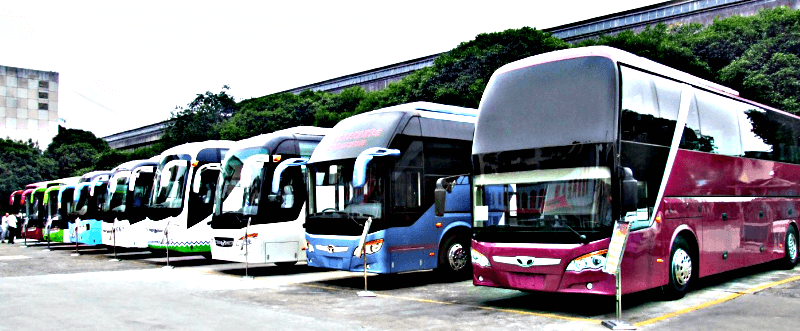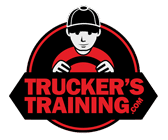Being a driver as a career can be very rewarding, especially if you love spending time on the road and meeting new people.
What’s even better is the fact that there are many different types of trucking careers, so you can choose based on what style you prefer.
If you’re considering driving for your next career move, then you likely have a lot of questions, including how much money you can expect to make. The truth is, the salaries vary based on a number of factors, just like with any other job. However, some facts about driving salaries and how you can grow in this industry are given below to help you get started.
Average Salaries for Drivers:
- Commercial Truck Driver: $40,000 per year
- Cab Driver: $30,000 per year
- Bus Driver: $36,000 per year
- Delivery Truck Driver: $29,000 – $75,000 per year
- Limo Driver: $25,000 per year
These are the average salaries of drivers in this field, which means income can vary from lower to higher. There are also additional bonuses and commissions that are offered to some drivers depending on the company that they work for. If you’re interested in taking a deeper look at these options, then here’s the information you need to know:
1. Commercial Truck Driver
Commercial truck drivers will generally travel hundreds of miles per day, especially if they work for a large corporation. This is why some drivers will negotiate their salary based on the miles they drive rather than the hours that they are on the road. When being paid per mile, the rate really depends on the company, truck driver and their experience, which is why it varies so much.
Individuals who are just getting started in this industry must get a commercial driver’s license, also known as CDL. The law requires all heavy truck drivers to have a CDL-A, which requires finishing and passing truck driving school.
Over time truck driver’s may increase their salary up to $60,000 to $80,000, although more than that is generally very rare.
2. Cab Driver
Where a cab driver works has a huge impact with their salary. For example, cab drivers in Utah might not make as much as NYC cab drivers, simply because they don’t have as many people passing through.
Prevalence of public transportation also affects how much cab drivers make in certain areas and whether or not they are in-demand. Highly paid drivers who have been on the job a long time may make up to $36,000 per year, although this is not typical.
Another factor to consider when it comes to being a cab driver is the introduction of companies like Uber and Lyft. Drivers who work for these companies full-time have reportedly made up to $90,000 per year in major cities, although averages are generally around $40,000 per year.
The income someone makes with these types of companies depends on how often they are willing to drive, where they live, when they drive and many other factors.
3. Bus Driver

Salaries for bus drivers depend on where the drivers live, as being in major metropolitan areas can result in increased incomes. For example, some MTA bus drivers in New York City make around $46,000, which is a big increase from those who work in more rural areas.
When it comes to school bus drivers, they make around $30,000 average, depending on where they live. Additional experience may result in making more money in the future, but it generally won’t make a major difference by the time retirement comes.
4. Delivery Truck Driver
Delivery truck drivers can work for major corporations or small local companies, which is why salaries vary so much.
For example, major corporation truck drivers who deliver parcels may make around $80,000 in addition to bonuses throughout the year, while local delivery drivers may make an average of $29,000 to $30,000.
The major corporations may have more strict requirements to get a job initially, so you may want to start with something smaller if you’re new in the field.
5. Limo Driver
Driving a limo or town car is a great opportunity for individuals who are passionate about giving great customer service. The average income may be around $25,000, but this can increase for those who have years of experience and a long history with the same company. It’s also important to note that these types of drivers may make quite a bit of money in tips, especially if they are located in an area with a lot of high-income clients.
Considerations
While the income for any of these driving jobs can be pretty good for most people, it’s important to research how to get into them in the first place. For example, some drivers can start with only their high school diploma while others will need to go to driving school to get their CDL license. Other states may have certain laws for drivers as well, which can mean spending more money to get into the career in the first place.
Another consideration to make is where you’re going to be a driver. If you’re going to drive for a corporation across the country, then your home base location isn’t as important as it would be if you were a taxi driver. If you need to have a lot of clients in order to do your job, then you may want to consider re-location before switching.
Which Should You Choose?
The driving career that you choose should depend on your preferences and your unique talents. It should also depend on your qualifications, especially if you’ve already gotten your CDL or have attended truck driving school in the past.
To get more in-depth information, you may want to speak with drivers who do these jobs already. They’ll be able to give you insider information and perspective on how much they have made over the course of their career. Remember, some opportunities are better than others, which is why researching individual companies is so important.
Being a driver can result in a steady income, so it’s a great choice if you’re looking for something that doesn’t require a big degree or experience on the job. And if you’re committed to staying at the same company for a long time, you may find that you make more money well into the future so you can retire with comfort.

Geoff is a freelance writer at TruckersTraining.com with 20+ years of experience driving trucks and buses, dispatching, supervising, and training commercial driving teams. His expertise is writing topics on the transportation and trucking industry, and information technology trends.


